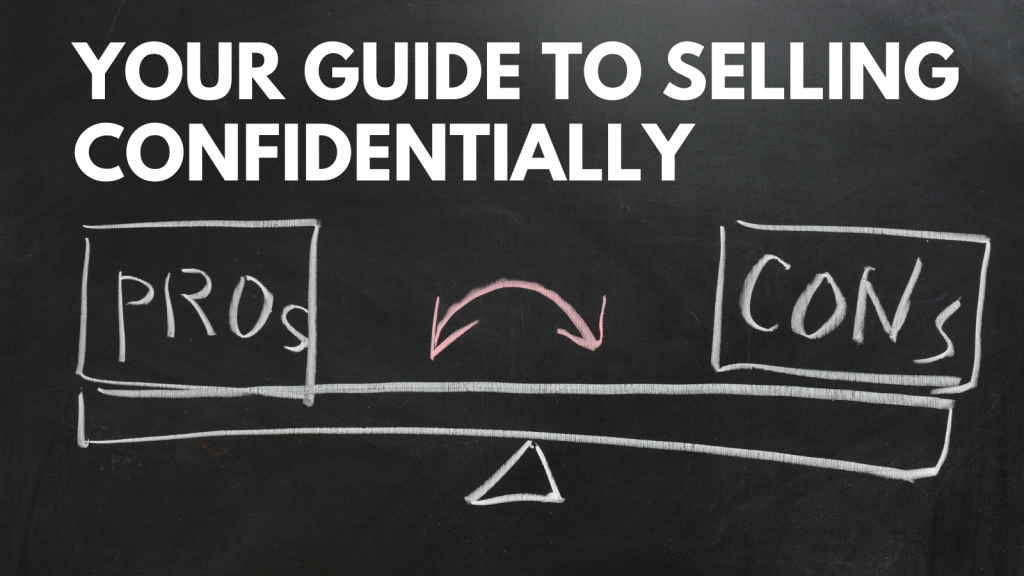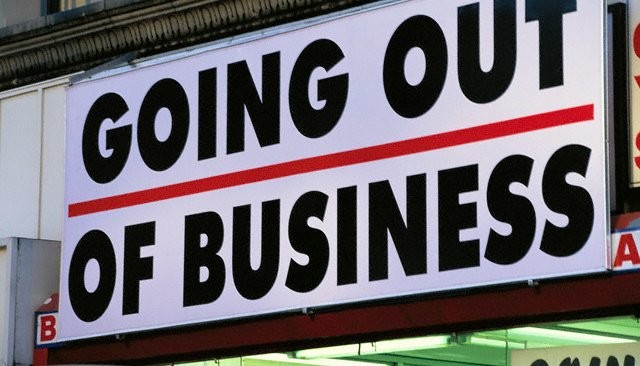-
Property auctions fast becoming a new way to sell in South Africa

Prime Auctions and Urban Link have partnered to bring you the best of Property and non – distressed Auctioneering to maximise your Property’s value. Contact us today and “Just Auction It”!
Non Distressed Online Property Auctions are taking the World by Storm.
Not only do Sellers enjoy the Auction benefits of finding the perfect market value that is only revealed by Auctioning, the added benefit of selling for cash with immediate, unconditional sales, appeals to the serious Auction Sellers – no waiting for bond approval nor having to first sell the Buyer’s property.
Buyers love the fact that they can bid from their phones, tablets, and Computers – wherever they are in the world!
Old fashioned Auctions are ‘distressed’ like a ‘Sheriff’s Auction’ where Buyers usually cannot view nor even gain access to the distressed’ Properties that are home to squatters or worse that they have to deal with, they are also exposed to unknown arrear expenses they have to pay – sometimes hundreds of thousands of rands owed for utilities – it’s a nightmare.
Urban Link in association with Prime Auctions Online non – distressed Auctions come with vacant occupation – guaranteed possession for Buyers – and all arrears paid up to date, amongst the many benefits of our unique Auction process with only qualified personal appointments with proven cash buyers.
Contact Us Today via email to: keeganh@urbanlink.co.za to find out all the benefits unique to us and sell your Property effortlessly for the best possible market related price.
Let’s auction it!
-
Selling in Dublin to move to the country…………….

A new trend is fast gaining momentum, many couples are abandoning the city and moving into the country.
A recent article this year gave feedback on a couple that embarked on that journey a good few years back, and reported back on the experience. Moving from the city to the country offers a plethora of benefits that cater to both physical and mental well-being. The serene and expansive landscapes of the countryside provide a break from the hustle and bustle of city life, promoting a slower and more relaxed pace. Breathing in fresh, unpolluted air and being surrounded by nature can lead to improved respiratory health and a heightened sense of overall wellness. The reduced noise levels contribute to a peaceful living environment, allowing for better sleep and decreased stress.
Additionally, the country lifestyle often encourages a closer connection to food sources, fostering a more sustainable and organic approach to nutrition. The sense of community is typically stronger in rural areas, fostering genuine connections and a supportive social network. Embracing a simpler, more nature-centric lifestyle in the countryside can result in a more fulfilling and balanced life. Read about this young large family who took the plunge here
There are numerous economic benefits to this as well. From a business point of view, operating a business in Dublin versus running a business in the country can be the difference between cutting it fine, or making a decent profit. Let us say you have a coffee shop in Dublin, staff wages are far higher in the city than in the country. Your rent will be 40% to 50% less, your rates will be at least half. These 3 components alone can shave some E2,500pm off your bottom line, becoming a straight profit. Key moneys are also significantly less than up in Dublin, so if you sold your business for say E125,000, you would pickup a similar business for half that.
Staying on economic benefits, smaller towns have reliable and well known handymen ready to assist with the smaller tasks a city handyman would not touch. A sense of reliability and honesty may also be at hand.
Now of course, who can do without being stuck in traffic? Most of us. Imagine having to op down to your local grocer, it could be gentle stroll away, or a short car drive away. Wherever you need to be, it will be a hop skip and a jump away!Talking property, we know of course that property prices in the cities are far higher than in the country. So selling at around 350,000 and buying a similar property in the country will cost you 60% to 65% of that value. Sizing down will be even more beneficial as one may not need all the accommodation from the past. Read this recent article about a couple who took the step to country living here.
.Living in the country has additional benefits apart from saving on property, a clean fresh air lifestyle and economic benefits. Country life does not need to be an isolated life, most bigger country towns have all the amenities of a big city, and friendship circles could be easy to form. There are government incentives geared for this type of relocation, read more here. Thinking of making that move? Why not!
Auctioning off your property to the highest bidder may well be the way to go when the time has arrived. Contact us for all your property buying and selling requirements by visiting http://www.urbanlink.ie and note that we also facilitate business sales via our sister company http://www.dealchasers.ie

-
Estate agents commission charges in Ireland. What is the correct fee percentage?

Whether you’re buying or selling, the property market can be complex to navigate with plenty of costs and legal jargon getting thrown around, making it difficult to know what you’re paying for. One common question is: who pays the estate agent?
An estate agent is working – first and foremost – for the seller. It’s the agents’ job to get the best outcome that they can for the seller, and they must work with the sellers’ interests in mind. In return, the seller pays the agent a commission, which is usually set as a percentage of the selling price of the property. So, the seller is the one that pays the agent commission.
In Ireland,, that commission is usually between 1% and 2.5% but – crucially – it’s only payable once the sale has been completed and the agent has fulfilled all their obligations and duties to the buyer. While buyers are often handed large bills for solicitors costs and surveyor costs, once a property is sale agreed, sellers also have their fair share of expenses to pay.
In the current digital age, it can be tempting to think that selling houses is an easy job. With sites like DoneDeal and Facebook Marketplace becoming increasingly popular, it’s easy to assume that listing homes are practically free. Why, then, would I bother paying an agent?
For starters, the data that agents use to give you accurate valuations of your property comes with monthly costs and the knowledge that agents have of the local market is something that can’t be replaced with simple online listing sites. The process of selling homes is complex and the legal knowledge required to be a good estate agent is something worth paying for.
Property listing sites like Daft and MyHome aren’t free to use either, and agents incur the costs associated with using these platforms. There are also the day-to-day costs of running a business – agents need email addresses, computers, printers, and fuel to get themselves to and from viewings. It may come as a surprise to many, but agents often spend between 30 and 50% of their commissions on the costs associated with selling your home.
Ok, so you know why you’re paying the agent and what they’re doing to earn that income. The next question is: are these commissions negotiable? In short, yes. If you’re a seller looking for an agent, you can negotiate the commission that you’ll be charged. But there are a few things you should keep in mind when you do so.
It costs the same to sell your home, regardless of how much it sells for. If your property is on the lower end of the market, the agent is making less profit on the sale and might not be willing to reduce their fee. The longer your property is on the market, the higher the costs are for the agent. So, if you’re looking to sell a property that might take a while, or you’re demanding a higher price than the agent thinks is reasonable, you might find yourself paying higher commissions.
At the end of the day, your agent will do the best job that they can with the income that they expect to make and the incentives for agents work in a way to balance the market: they earn more when the house sells for more, but they only earn if it sells at all. Your best bet as a seller is to trust your agent to do their work because their job is to get the best outcome for you, and their income depends on how well – and how quickly – they can do that.
Raal Nordin is the owner of URBAN LINK – an international real estate agency group.
-
Two ways to sell your business

Fundamentals on How to Buy or Sell a Business
Are you looking to buy or sell a business and not sure where to start?
In this article, DEAL CHASERS will go through some of the fundamental concepts you should know about buying or selling a business so that it can get you off in the right direction.
Introduction
There are some important considerations that need to be made in the purchase of a business. Often, a business in the form of a company can be sold either for its assets or as a share sale – a distinction you need to make to figure out what is most suitable for your situation.
Share Sale
A share sale of a business, as the name implies, refers to purchasing shares in the company rather than just the assets. You, as the buyer, are essentially purchasing the entity along with all of its assets and liabilities.
Asset Sale (Contract of Sale)
An asset sale or contract of sale refers to the buying or selling of a business’ assets. This may include some of the following:
- Plant and equipment
- Land
- Machinery
- Goodwill
- Intellectual property (such as trademarks and domain names)
- Contracts
In asset sales, the seller would still retain ownership of the business entity should they elect to do so.
Advantages & Disadvantages of an Asset Sale
Buyer Advantages of Asset Sales
An asset sale or contract of sale is often referred to as pro-buyer as it poses low risks and allows prospective buyers to cherry-pick assets of a business that are most valuable whilst discarding the unwanted assets or liabilities. The liabilities of the business can be chosen to remain with the seller and not be transferred over to the new owner.
From a taxation perspective, a buyer has the advantage of valuating some assets during the purchase such as plant and equipment that would be beneficial when it comes to claiming depreciation as a tax deduction on these assets.
Buyer Disadvantages of Asset Sales
Although there aren’t too many downsides to purchasing the assets of a business, there are situations such as government licenses and permits that cannot be transferred. In addition, in the case of purchases of land or property, stamp duty may be involved in the purchase.
If a business also has existing contracts with third parties, there can sometimes be complications with novating contracts with the buyer if the third-party refuses to offer this. In the case of employee contracts, these are not transferrable in an asset sale and must be renegotiated.
Seller Advantages of Asset SalesSellers tend to be able to exclude any assets they are unwilling to sell or do not intend to be transferred. In addition, the seller also has fewer liabilities with warranties and indemnities for the assets transferred.
Seller Disadvantages of Asset Sales
Similar to the disadvantages of buyers in asset sales, transferring existing contracts and assets to a new owner may require the consent and involvement of third parties. This can be a slow and difficult process if these third parties do not agree to assign the contract to the new buyer. In addition, liabilities of the business still generally remain with the seller if the buyer is not taking on such liabilities. The sale of the assets of the business can result to the owner be left with a shell company and can be costly to close down.
Advantages & Disadvantages of a Share Sale
Buyer Advantages of a Share Sale
In cases where the business has recognized brand, goodwill, and reputation, it is advantageous for buyers to buy the business as a share sale to take advantage of this asset. Given that the purchase of a business is in its entirety, any existing contractors would not need to be reassigned and therefore, no third-party consent is required. By taking over the company, you also manage to keep the history of the company which can be advantageous as many third-party stakeholders such as banks, insurance companies, finance and contractors would prefer to deal with companies with a long term reputation. GST and Stamp Duty is normally exempt or not payable in the purchase of shares.
Buyer Disadvantages of a Share Sale
The risk in buying shares in a business lies in the unknown – as a buyer, you are taking on all past, present and future risks and liabilities of the business. To mitigate this, a buyer must engage in extensive due diligence to ensure that all risks associated with the business are identified and addressed.
Seller Advantages of a Share Sale
Share sales are considered pro-seller in many instances primarily for reasons related to relinquishing the majority of seller liability in the business as this is transferred to the new owner. In addition, a share sale transaction tends to result in a better overall return for the seller and a 50% capital gains tax (CGT) concession on the sale of the business if they have owned the business for more than 12 months (the shares must be owned individually or in a trust). The sale of shares of a business can also allow the shareholder to easily access small business CGT tax concessions which can result to the shareholder paying nil tax on profits of the sale of the company shares.
Seller Disadvantages of a Share Sale
As a seller, for a successful business transaction to occur, they may be required to provide extensive information, warranties and indemnities for historical liabilities of the business. In such instances, a personal guarantee is often required which may expose them to unlimited personal liability.
Key Takeaway points
Whilst there are some clear-cut advantages for buyers and sellers whether it be an asset sale or a share sale, what’s important is to consider what type of business you are buying and selling in the context of what you plan to do with the business or its assets.
What’s common across all these options is to ensure that the appropriate due diligence is being conducted to ensure an informed decision is being made. Engaging a qualified solicitor or accountant will help you to navigate this complicated process as it can expose buyers and sellers to unnecessary risk if not conducted properly.
Article by RAAL NORDIN of DEAL CHASERS BUSINESS BROKERS IRELAND
Disclaimer:
Please note that every effort has been made to ensure that the information provided in this guide is accurate. You should note, however, that the information is intended as a guide only, providing an overview of general information available to contractors and small businesses. This guide is not intended to be an exhaustive source of information and should not be seen to constitute legal or tax advice. You should, where necessary, seek your own advice on any legal or tax issues raised in your business affairs.
-
What is the process of selling my business in Ireland

Selling a business can be a daunting task for a layman when it comes to deciding that they want to sell the business. IE: How long will it take to sell, who can I trust in the process and what are the various steps required to do so.
At DEAL CHASERS we can assist a potential seller in this step by offering a free initial call and a free desktop valuation of the business. We do not charge any upfront commissions and are paid only on performance of the sale. We have been trading as business brokers for some 20 years and have honed the sales process down to a tee.
Before going to market, a few important aspects need to be discussed and clarified, most importantly is the validity of the current lease agreement, can it be assigned, what is the remainder of the lease, when are the rent reviews, what is your turnover, cost of sales, turnover been increasing or decreasing, staff stability, GP, Nett profits, availability of financial information and many more factors will decide where the price is at.
Once a price is derived, and hopefully agreed on by both seller and business broker, the marketing of the business commences. Firstly, ANY agent, broker or “auctioneer” tells you to go public, you can shave 30% off your sales value. No business should EVER be advertised publicly.
Another key part of negotiations is the structure of the deal. While price is important, it is only one part. Each deal will have its own considerations and should be structured in the most advantageous way for the buyer and seller from a legal, tax and stamp duty perspective. When a seller is selling due to retirement, the CGT – Capital Gains tax- can be reduced from 33% to a mere 19% upon certain conditions. Read them here There are also various types of tax relief that may be applicable, for example, retirement relief or transfer of business relieve.
Once a deal has been agreed, then certain legal documents must be drawn up. The most important is the purchase agreement, which set out the terms of the deal. Other documents that can be required include non-competition agreements – where the seller commits to not set up a rival business within a set time – or earn-outs, where the seller stays with the business and receives a set amount if the business hits certain financial targets within an agreed period.
In cases where there are several bidders for the business, there may be more than one round of bids made before a preferred bidder is identified. When a preferred bidder has been found, then negotiations are exclusively with them and they can access more information about the business to evaluate their price for the business. This practice is typically called the due diligence period. Read about due diligence here
Closing of the sale must be done via a HOA (Heads of agreement) and both buyer and seller sign this document. The buyer then pays a 10% down payment of the value of the business, to the business broker to show goodwill (Refundable if no contracts are signed) The HOA is not a legally binding contract and is merely an indication of the terms and conditions of the sale. The actual sale agreement is dealt with by the solicitors acting for each party respectively.
Raal Nordin is a representative of DEAL CHASERS BUSINESS BROKERS IRELAND
-
Must I sell my business confidentially or go public when going to the market?

We are often asked the question by potential sellers whether they should sell their business confidentially, or to go public. Let us discuss the options.
Some of the sellers we engage with have been told by their “auctioneer” {estate agent} that they should go public and have a big board outside the premises and a Daft advert with their business displayed for everyone to see. The negatives far out way the positives, and the 3 top negative reasons are:
- Loss of Control over Information: The commercial information released at this time is highly sensitive, and potentially open to malicious use by rival businesses. This can lead to a loss of control over how information is perceived and can impact negotiations.
- Employee Concerns: Announcing the sale publicly can cause uncertainty among employees, leading to potential disruptions in the workforce. Key employees might leave, affecting the overall stability of the business.
- Customer and Supplier Apprehension: Publicly disclosing the sale can make customers and suppliers nervous about the continuity and stability of their relationships with the business, potentially impacting revenue and supply chains.
What these 3 strong points lead to, is that you may have to heavily reduce your sales price because all these 3 points are closing in together and happening right in front of you. You need to put more hours in because staff are leaving, suppliers are pushing for cash upfront payments suddenly and customers start finding a different spot for their custom. If you were not under pressure to sell your business, you soon will be! Sadly, that impacts the most important aspect, THE PRICE!
But to be fair, let us look at the negatives of a confidential sale. A confidential sale does mean that you are limiting the amount of potential buyers that are in the market. It could also lead to a slower sale albeit to a more secure buyer and a higher price. It really all comes down to the level of urgency that the seller has. A confidentiality agreement {or NDA} is a must have in the case of a highly confidential sale. When a party expresses an interest in the business for sale, a Non-Disclosure Agreement is sent out prior to the release of the Sales Memorandum. The NDA is signed by the interested party and the agent.
Ultimately, the decision to sell a business publicly or confidentially depends on various factors, including the nature of the business, its market position, and the seller’s specific goals and priorities. What needs to be remembered is that “auctioneers” are not qualified business brokers, they tend to want to sell the lease, and a business has far more variables than just a lease. Unfortunately for the seller but fortunate for the auctioneer. Once the daft ad and large board outside is done and the mandate is signed, its easy pickings for them.
Call your DEAL CHASERS business broker to find out how to go about valuating your business and the possible marketing in a confidential setting. http://www.dealchasers.ie or call: 0818 183 037
-
Embracing the Future of Real Estate Sales: The Rise of the Modern Hybrid Auctioneer.

The days of walking into a local agent’s office are fading, and high street agents are losing their appeal. It’s time for property sellers to embrace a more modern approach to bringing their properties to the market.
In today’s rapidly evolving global digital world, the real estate industry is undergoing a transformation, challenging traditional practices, and encouraging sellers to adopt innovative technologies with a modern approach.
But what exactly is this modern approach? Enter the era of the Modern Hybrid Auctioneer—a professional who prioritizes your interests over commissions. Unlike most agencies that prefer to keep listings exclusive and hold on to full commissions, our approach is different. We believe in maximizing exposure to attract a broader range of potential buyers for YOU, the seller.
So, how does this cutting-edge approach work? It’s all about expanding marketing reach to engage more buyers. Gone are the days of simply listing a property on a local website like Daft or putting up a For Sale sign. Welcome to URBAN LINK, a fast growing international estate agency with an impressive network of 36 offices across the globe, revolutionizing the way sellers interact with their property sales.
At URBAN LINK, we have invested significant time, resources, and effort to create a highly accurate and efficient method of selling your property to the highest bidder within the shortest possible timeframe. Here’s how it works:
1. Exclusive 90-day Sole Mandate: During the initial 30 days, we list your property on at least 8 major online portals, both nationally and internationally. This extensive exposure reaches around 83 property platforms across 51 countries, ensuring a vast pool of potential buyers, including Daft, Myhome and our own site www.urbanlink.ie
2. Expanding Opportunities: If, within the first 60 days, no suitable buyers emerge or offers are lacking, we initiate a dual mandate managed by us. Your property will be listed with two additional agencies of your choice in your local area for an extra 30 days.
3. Efficient Auction Process: After a total of 60 days on the market, and no offers {or acceptable offers} are forthcoming, then we employ a time-tested auction advertising strategy for 3 weeks, leading up to the auction in the 11th week of the mandate. This proven approach guarantees a solid deal without the risk of Gazumping or post-offer renegotiations. The auction is open for 7 days, enticing bids, with your reserve cushion. What is Gazumping? Read here
On day 90, you are SOLD conclusively and unconditionally!
If you’re considering selling your property, why not explore the new way—the Modern Hybrid Auctioneer’s way? Embrace the future of real estate sales with URBAN LINK’s cutting-edge approach.
For all inquiries, please contact:
Email: admin@urbanlink.ie
Phone: 0818 524 444
Website: www.urbanlink.ie
-
Subscribe
Subscribed
Already have a WordPress.com account? Log in now.



